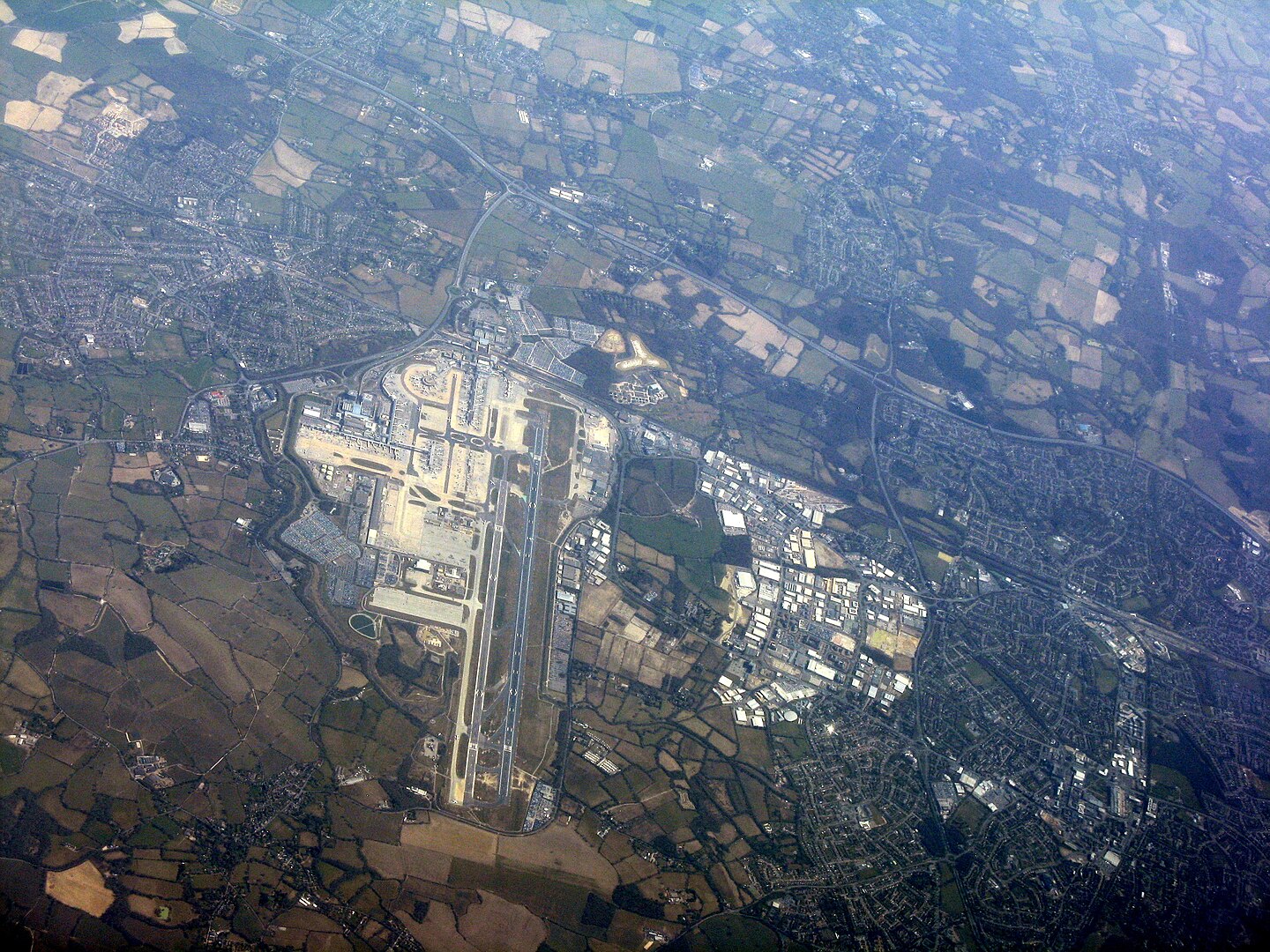 BBC News
BBC NewsBorrowing was £17.4bn last month, the second highest October figure since monthly records began in 1993.

Finito World
The approval of a second runway at Gatwick Airport has been hailed in Westminster as a “no-brainer for growth.” But for many on the ground — from business owners to environmentalists – the £2.2 billion expansion is a fork in the road. The project, privately financed and long delayed, raises urgent questions about the kind of economy Britain is building, who benefits from it, and at what cost.
Transport Secretary Heidi Alexander’s green light clears the way for the UK’s second-largest airport to move its Northern Runway 12 metres and bring it into routine use. The plan would enable Gatwick to handle 389,000 flights a year by the late 2030s — up from the current 280,000 — and double passenger numbers to 80 million. Terminals will expand, jobs will be created, and, at least in theory, the local economy will get a much-needed lift.
In an economy where regional development is increasingly critical, the promise of job creation is politically attractive. Unite the Union’s general secretary Sharon Graham has welcomed the move — with a caveat: “It must come with guarantees of well-paid, unionised jobs and proper facilities for workers.” For a government under pressure to unlock productivity and private sector investment, the project represents a tangible win.
Gatwick’s expansion could generate thousands of new jobs in aviation, construction, retail, and logistics – at a time when the UK faces stubbornly low productivity and wage growth. A recent CIPD report showed that job vacancy rates remain high in sectors such as transport and warehousing, particularly in the South East. Local colleges and skills providers could stand to benefit from investment in apprenticeships and training pipelines aligned to the airport’s long-term staffing needs.
The airport claims that local SMEs and suppliers will be brought into the fold, supporting an ecosystem that goes beyond air travel. But critics argue that the promised uplift is not guaranteed. Alex Chapman of the New Economics Foundation warns that the move may simply “displace jobs from other parts of the country,” rather than creating net new employment.
For many regional business owners, particularly in travel, hospitality, and freight, the expansion is welcome. Improved infrastructure and more flights – especially to long-haul destinations — increase connectivity and could encourage more investment into the region. The Federation of Small Businesses (FSB) has previously noted that access to international transport links is a critical driver of regional economic dynamism.
But small businesses are also wary. Rising rents, congestion, and pressure on local services could follow. And as one West Sussex restaurateur put it: “More visitors are great – but if our own staff can’t afford to live nearby, what’s the point?”
Gatwick’s own modelling suggests that at least 54% of future passengers must use public transport to keep traffic and emissions under control. But with only two trains per hour currently operating on the Gatwick Express – half of the pre-pandemic service – that goal remains aspirational. The airport says it needs help from third parties, including the Department for Transport, to make that vision viable.
Failure to meet the transport target or implement a “cars-on-the-road” cap would delay runway use until £350m in road upgrades are complete. Local councils and residents fear disruption in the interim — and have expressed frustration that they may bear the burden without sharing fully in the benefits.
Predictably, the fiercest opposition has come from climate groups. The Green Party’s Zack Polanski called the project “a disaster for the climate crisis.” Stay Grounded and Greenpeace have echoed the sentiment, warning that aviation emissions remain one of the fastest-growing contributors to global warming — and that expansion undermines net-zero ambitions.
Yet ministers argue the project meets “strict environmental requirements,” and the government insists that climate commitments will be honoured. Still, the optics are difficult. With the government also signalling support for Heathrow’s third runway and recent expansions at Luton, critics argue that the UK is entrenching air-based mobility at the expense of greener modes of transport.
One government source said that “planes could be taking off from a new full runway at Gatwick before the next general election.” Whether that timeline proves true or not, the politics are undeniable. For Labour — under pressure to show it can unlock economic growth — this is a moment to demonstrate pragmatism.
Shadow transport secretary Richard Holden has called it “a vital step,” though he criticised Labour for delays in the decision. Chris Curtis, chair of the party’s growth group, has pushed for “radical planning reform” to enable similar projects to move more quickly in the future.
In this sense, Gatwick becomes a test case — not just for airport capacity, but for the UK’s approach to infrastructure investment in the 2020s. If successful, it may strengthen the argument for large-scale private investment as a partner in national growth. If not, it could deepen scepticism around the environmental and social cost of such projects.
For now, though, the path is clear: Gatwick is cleared for take-off — and the rest of the country is watching to see where it lands.